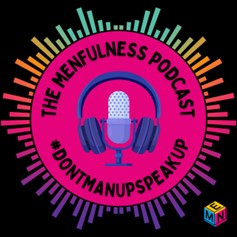Every year the Institute for Social Justice allocates funding to Community Research Grants; which are pockets of funding that facilitate projects between York St John researchers and VCSE groups. This year, the Institute for Social Justice have funded seven extraordinary projects, and this blog post explores Dr Gary Sheperd’s work with York based charity Menfulness. Written and researched by Maisie Wilson, ISJ Intern.
Menfulness have worked throughout York for the past five years, creating safe online and in-person spaces to encourage men to talk through their feelings. With a focus on improving mental and physical health, Menfulness offer a range of services. There are football clubs, allotment groups, running and cycling groups, as well as affordable counselling sessions. In a time of increasing awareness of toxic masculinity, and with suicide as the leading cause of death for men under 50, Menfulness have stepped up to fill the chasm that many men are left in. How do we normalise talking about feelings? How do we undo centuries of social conditioning? How can men help themselves and each other to improve their wellbeing? These are the questions that Menfulness helps their members to muddle through.
Community Research Grant – asking ‘why things work?’
Trustee Sam Watling explains to me that Menfulness is invaluable for the men who use their service, and shows that over the past five years their practical and emotional support techniques deliver essential support to Menfulness members. Sam and Menfulness’ other trustees all agree that Menfulness does work – but what they want to know, is why.
This is where the Community Research Grant comes in. Working hands on with Menfulness, Dr Gary Shepherd and research assistant Holly Murphy began working on the project in October. Their aim is to reveal how Menfulness works so effectively, in the hope that Menfulness’ success can be continued and repeated. The first point of call has been the Menfulness Podcast, which Sam Watling brilliantly hosts. Gary wants to find out how the podcast acts as a gateway to men intrigued by Menfulness, and encourages them to access more of the services that Menfulness provide. Gary’s initial research has suggested that men might listen to the podcast once or twice, and then be inspired to join social groups, or apply for counselling sessions.
The power of a podcast
After conducting interviews with listeners of the podcast, Sam tell me that Gary has already offered crucial insight into the ways that the podcast functions. Gary’s research, which is being written up as we speak, demonstrates how Sam models open, emotive behaviour – giving listeners the language and courage to talk more freely about what they are feeling. Crucially, Sam also provides information on what can be done about negative emotions, and gives details on the kind of help that’s available. Gary adds that the podcast funnels listeners into the online spaces that Menfulness provide – and with huge success. The Menfulness Facebook and WhatsApp groups already boast 2000 members, and this number is only increasing.
With one paper under their belt, Gary and Holly now want to focus on the specific effects that Menfulness have on their members. Gary tells me that they have distributed surveys questioning how service users felt before and after finding Menfulness – with the aim of uncovering the extent to which members lives are improved.
With pride Gary tells me about the co-participatory nature of this research project. Whilst most research involves someone with a PhD staring at a dual screened computer for hundreds of hours, the Menfulness project instead prizes collaboration and meaningful partnerships with the people they study. The project began with Gary sitting down with Menfulness trustees and asking them what they would like to know about their charity. What would help them run their service better? Is there anything that they, as trustees, want to know more about? These are the questions that lay the foundation for this Community Research Grant project.
Reflecting on social justice research
This synergistic approach embodies the hallmarks of the Institute for Social Justice. As this is a project that emphasizes cooperation and mutual respect. In my social justice MA, I’ve learnt a lot about the ways that research can half-heartedly try to involve stakeholders – reducing social justice research to a meaningless tick box exercise rather than a truly useful or considerate project. Gary tell me that he feels immensely proud of the co-participatory element of this research, as it embodies the values of the Institute for Social Justice.
It’s actions like this that drew me to the Institute for Social Justice, and continue to draw other students towards this work. Throughout my degree the uncomfortable positioning of researchers as ‘the ones with knowledge’ and subjects as ‘the ones we extract data from’ has left a bad taste in my mouth. Having researchers at York St John model this kind of deferential, compassionate research approaches gives me hope for what ‘the academy’ can look like.
And there’s cause for hope all round. After the Menfulness project concludes in July 2024, Gary hopes to secure more funding to try and set up similar organisations in cities around Yorkshire, aiming to replicate the positive outcomes that Menfulness have generated. Before that in June, Menfulness trustees and researchers Gary and Holly will collaborate to run a one-day conference displaying the results of their project.
If you’re interested in other projects that the Institute for Social Justice support, then subscribe to this blog for other posts detailing Community Research Grant projects.


